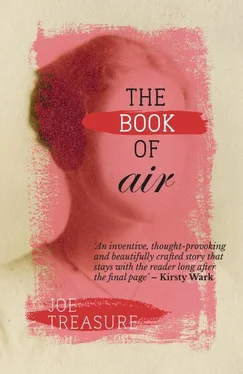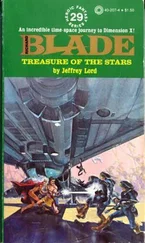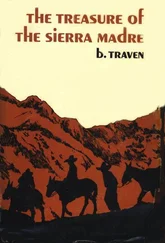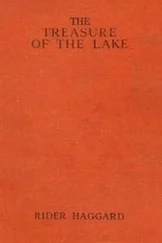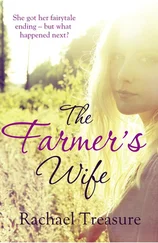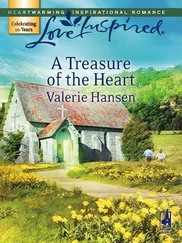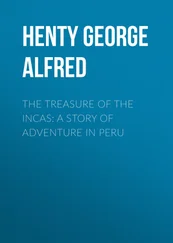While Django is serving dinner, Aleksy leans towards me. ‘We all lost things,’ he says. ‘It makes us grip tight to what we got left. Your books. Deedee’s wallet. I understand.’ He pulls something out of his pocket. It’s a pipe. ‘This I carry with me always. Maybe I never see tobacco again.’ He shrugs. ‘Even so.’
Django’s stew has an earthy smell. There are a few woody carrots chopped up in it and a small amount of rice and a lot of herbs and two kinds of mushrooms. The mushrooms have been delicately sliced and lie in cross section on the plate – pale flat ones and smaller darker ones with pointed caps and stringy stalks.
Their fibrous texture makes me long for meat. Deirdre sits beside me in a low-cut dress with flimsy straps to remind us all of a lost world.
We talk about the day’s work and what must be done tomorrow. Aleksy has some news. One of the two sows, which he found rooting in the wood and enticed home with a bucket of milk and peelings, is definitely pregnant. There’s a surge of optimism. I listen to the others talking and begin to feel better. With the first frost we’ll slaughter one of the cows and roast joints of beef. Next year, if we survive the winter, we’ll have potatoes and parsnips and we’ll grow tomatoes in the greenhouse. And by the autumn there’ll be bread if we live that long. And sooner than that we’ll make a churn if the cows keep giving milk, and fry our mushrooms in butter, and our eggs too if the hens and geese keep laying, and we’ll experiment with better ways to make cheese, hard nutty cheddar that will sit in the cellar with the apples and feed us like kings all through next winter. Our ambitions grow extravagant. I begin to talk as freely as the others. I eat Django’s strange stew and feel my resistance slide away.
It’s a warm evening and the fire is hot so Maud opens the windows and we watch the glow of the sun and the shadows drawing lines across the lawn. Our laughter blows out over the valley, is inhaled back into the room, drifts out again to settle in the undergrowth where the remains of human habitation are slowly rotting. Purple leaves stir at my elbow and I sense some creature scratching among the roots. A single leaf brushes the branches as it falls. Settling softly, it shrinks and dwindles into mulch. I wonder that I can hear so sharply and see so acutely into the shadows, bending my vision over the window sill, watching time accelerate, but I find it’s not so surprising after all because my head has floated away from my body and time jumps randomly at every pulse.
Aleksy laughs with his mouth wide open, his head pushed forward, the lips drawn back from the teeth. Beside me, Deirdre makes high gasping noises that remind me of the monkey, and I wonder if it is the monkey, chattering somewhere among the trees, and Deirdre has opened her mouth not to laugh but to express astonishment at Aleksy’s teeth, which are like the teeth of a horse. Sitting with her back to the fireplace, Maud laughs with her hands across her mouth because her head has imprisoned such monstrous secrets that no sound can be trusted not to let the cat out of the bag.
‘Say it, Maud,’ I tell her, loud in her face. ‘Just blurt it out.’ And she looks at me amazed as if I’m the one who’s mute.
Time lurches forward. I know this because Django is sitting on the floor beside the fire, playing his clarinet. He blows into the flames and his notes scatter with the ash. Another lurch, and he’s back at the head of the table with his bowler hat on and we’re eating his blackberries. My spoon tilts and the berries scatter across the tablecloth. I hunt them down among the vegetation – the stalks and blooms that interweave in repeated patterns across the table to where Abigail sits watching me with open-mouthed surprise.
I’m drunk. I look at my glass, lift it to my nose and sip, but taste nothing but water.
‘It’s time you all knew about Simon.’ Django says this, and I’m surprised because no one knows more about Simon than me. ‘Look, everyone,’ he says, ‘there’s something I want to show you.’ He takes a scrap of paper from the pocket of his deckchair blazer and unfolds it. It’s from a newspaper – a photo and a column of print. ‘Someone left the paper on the bus. It was turned to that picture. I saw at once.’
The cutting passes around the table. It’s from another time – an age of buses, an age of newspapers piled in their thousands at tube stations, commuters thronging the escalators, millions of words printed morning and night. The picture swims up at me in bright colour then settles back into shades of grey. It’s Simon, my Simon, standing outside a pub, and a policewoman holding his hand. What’s this new trick? Cleverer than a bunch of flowers – Django’s pulling bits of our past out of his pocket.
Deirdre peers at it. ‘But that’s…’
‘Yes.’ Django nods eagerly as if it’s the lesson for the day and she’s the first to get it.
‘That’s… the boy. The Elmbridge boy.’
‘Of course. Now look what’s above his head.’
‘In this house? The Elmbridge boy?’
‘Yes. In this house. But look.’
Aleksy leans across to pull the paper from Deirdre’s hand. ‘What is it, Django?’
‘It’s a sign.’ He’s immensely pleased with himself.
‘It’s a pub sign, Django,’ I tell him. ‘We all remember pub signs.’
‘It’s the sundial.’
‘Yes, that’s the name of the pub – the Sundial.’
‘There are no accidents.’
‘There are accidents all the time.’
We’re locked in this argument, Django and me, and it already feels as if lives depend on it – Simon’s life and mine too, maybe. But so far no one else knows what we’re talking about, and I’m not even sure I do. The ground is shifting under us and we’re all scrabbling for a foothold. Except Django, who seems to have swallowed every candle in the room and to glow with the accumulated light.
‘I will cause the sun’s shadow to move ten degrees backward on the sundial.’
‘Yes, Django, it’s in the Bible. I could find the page in about thirty seconds. Listen, all of you – just because it’s in the Bible doesn’t mean it means anything. Anything’s in the Bible if you look hard enough. So there’s a sundial in Isaiah, and here’s a sundial. So what? The shadow on this sundial isn’t going anywhere. It’s a picture somebody’s painted of a sundial because that happens to be the name of the pub.’
‘I didn’t say it was a miracle, Jason.’ Django gestures towards me for everyone’s benefit, because my anger is a count against me, a warning that I might lose control of myself again and go for his throat. ‘I said it was a sign. And why is it so important to you to deny it?’
‘I’d like to know this, actually.’ It’s Aleksy grunting his way into the argument. ‘Why is this so important to you that you get all excited – that this is a sign or not such a sign?’
‘Not to me. It means nothing to me one way or the other. It’s Django’s cutting. I say we put it on the fire with the books.’
Deirdre has taken it back from Aleksy and is studying it. ‘It is our Simon. Look Aleksy.’ She holds it for Aleksy to see and looks at me bewildered. ‘Our little Simon is the Elmbridge boy?’
‘Yes.’ I’m relieved that’s he’s our little Simon – that’s two reasons not to lynch him.
‘So his mother…’
‘Yes.’
‘She was your sister.’
‘Yes.’
‘And she was one of them ?’
‘One of who?’ Abigail asks, looking at Deirdre, then at me. ‘Who is the Elmbridge boy?’
Deirdre is amazed. ‘You don’t remember? Where were you?’
‘It was the sundial I saw first.’ Django is still telling his story. ‘And he had this canvas bag over his shoulder, see. And what was in it? It says, here, in the fifth paragraph, look. A honey sandwich. And I saw that the prophecies were being fulfilled. Butter and honey shall he eat, that he may know to refuse evil.’
Читать дальше
